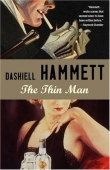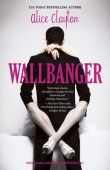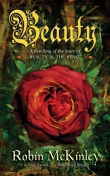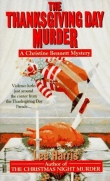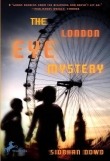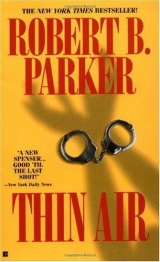
Текст книги "Thin Air"
Автор книги: Robert B. Parker
Жанр:
Крутой детектив
сообщить о нарушении
Текущая страница: 10 (всего у книги 14 страниц)
"And just how do you plan to… `verify'?"
"Lemme get back to you on that," I said.
There was no natural day and night for her. She slept, she woke up. He was there, he was not there. This time he was not there, but there was a tray in the room, sliced tomato, a warm tortilla, and a thermos of coffee. Coffee. It must be morning. She sat on the side of the bed wearing pajamas supplied by him, slightly oversized, like the kind Doris Day wore in Pillow Talk. The video monitors were playing soundlessly. She had no idea how they turned on or off She saw herself naked in the shower, and then walking naked from the shower straight into the camera. It played over and over again. There was always something playing on the video monitors. The shower scene, the scene of her bound in the back of the truck, the earlier scenes of herself and Luis at the beach. Scenes of her in her flapper costume, scenes of her asleep, all looped to play over and over, beacons of captivity in the darkened space. I need a weapon. On her breakfast tray was a spoon, fork, and butter knife. Nothing very deadly there. She'd read about people in jail making weapons out of sharpened spoons. She picked the spoon up and looked at it. She looked around the room. She had no idea how she would sharpen it. She poured some coffee and put in two spoonfuls of sugar. Outside the building she heard a rolling thunderclap. It excited her. It came from the world outside this room, away from the monitors. A world of movement and color, of sound and possibility; a world going sanely about its business, ducking into doorways, turning up coat collars, opening umbrellas as the rain began.
"You son o f a bitch," she said aloud. "You can't keep me here."
She ignored the tomato and picked up the tortilla.
She folded it twice and took a bite and began to walk around the room, chewing, looking for a weapon. The lamp was too puny looking. He was very strong, she knew. There was a floor lamp, but it had a skinny shaft and a wide, heavy base and was too unwieldy to be useful. She got down on her hands and knees and looked under the. bed. There were bed slats holding up the box spring. They were a possibility, but they were rough, flat pine boards that were hard to swing or even hold. On her feet again, she finished the tortilla. The wardrobe was full of clothes on wire hangers. The theater flats that decorated the room were mostly plywood and canvas. Nothing she could pull off and use. Behind the flats, the walls they were concealing were crumbling plaster over lath. In many places, wide patches of the plaster had crumbled away entirely, exposing the scaly gray-white lath beneath it. Here and there, in the diminish light from the lamp and the monitors, she could see vestigial scraps of old wallpaper, some several layers thick. Besides the roach powder, she could smell the tired mildew scent of an old building. She went into the bathroom. The back of the sink was bolted to the wall. The front rested on two chrome front legs. She felt one of them; they felt solid; she tried to wiggle it; nothing happened. She wished she knew something about how things were made. How would they attach those legs? She turned it. It gave a little. She turned again. Of course, they screwed on, that way they could level the sink. She carefully unscrewed it, and when it came away from the sink, she found that it was an iron pipe, encased in a chrome sleeve. She hefted the pipe. Yes! Then she carefully propped the chrome sleeve back up under the sink and took her iron pipe and hid it under her mattress. "Now we'll see, you bastard," she said. But she said it soundlessly.
Chapter 28
Chollo and I sat in my car in the easy spring sunshine, drinking coffee and looking at Luis Deleon's redoubt. There was a bag of plain donuts on the seat between us.
"What you think you'll see?" Chollo said.
He was slouched in my front seat, one foot propped against my dashboard. He always looked comfortable, even in uncomfortable positions.
"We got three possibilities," I said. "She's not in there at all. She's in there under duress, or she's in there not under duress. If she's in there and she's not under duress, I figure sooner or later she'll come out. Go for bread, buy a dress, go to a restaurant, walk the neighborhood, soak up the ambience."
"I been in jails got better ambience," Chollo said. "And if she is under duress-man I love the way you gringos talk-she won't come out."
"Right."
Chollo drank some coffee and rummaged in the bag for another donut.
"And if she's not in there at all, she won't come out."
"Right."
"So we see her, we'll know something."
"And if we don't, after a while, we'll have narrowed the possibilities from three to two."
"So how long you figure we'll sit here?"
I shrugged. Chollo found his donut and took a bite.
"How come it takes you all that time to find the right donut?" I said. "They're all the same."
"No two donuts are alike," Chollo said. "You had Indio blood you'd understand."
We looked at the house. A tall guy with a Pancho Villa moustache wearing a faded tan windbreaker and a San Antonio Spurs cap on backward leaned in the doorway. Chollo put his empty coffee cup on the floor and opened his door.
"I'm going to reconnoiter," he said.
"Yeah," I said. "Use that Indio blood, look for a sign."
Chollo got out of the car, closed the door, put his hands in his pockets, and strolled toward the tenement compound. I sat and worked on the coffee. Decaffeinated, with cream and sugar. If you drank some and then took a bite of donut, it wasn't so bad. In a while someone came to the door of the house and replaced the guy with the Pancho Villa moustache. The new guard was a fat young guy with a shaved head and an earring I could see from across the street. He was wearing unlaced high top black basketball shoes and a hooded red sweatshirt with the hood casually hanging to highlight the earring, and baggy pants with an extreme peg and the crotch at about knee low. The sweatshirt gapped over his belly and I could see the handle of an automatic pistol showing above his belt. As they changed places both guards looked over at my car. I didn't mind. If I stirred up interest maybe something would happen. Anything would be progress. Nothing happened.
I ate another donut. Susan had explained to me that they were not healthful, and while I was in favor of healthful, rice cakes and coffee didn't do it on a stakeout. Susan had explained to me that it didn't have to be rice cakes or donuts. Why not bring along a nice lettuce, tomato, and bean sprout sandwich? I told her if Chollo reached into the bag for a donut and found a bean sprout he would shoot me, and she'd have only herself to blame for her sexual deprivation. She smiled at me sadly and began to talk to Pearl.
The door opened and Chollo got back in. He reached into the backseat for the big thermos and poured himself some coffee.
"This is the real stuff, right," he said. "In the tan thermos?"
"Yeah," I said.
I tried not to sound sullen. The decaf in the blue thermos was very satisfying.
"Place is a quadrangle, four tenements, all of them three stories, all of them connected by walkways from the third-floor back porches. The alleys between are walled up with plywood, and there's sandbags behind the plywood. There's some sort of wire fencing around the roof. It looks like they're growing plants up there. The windows are boarded up, with gun ports in them. There's a guard on one of the back porches, can see the whole interior of the quadrangle. There's at least one guy on the roof."
He sipped some coffee and made too much of how good it tasted.
Then he said, "I can hear kids in the yard in the center of the quadrangle. I could smell cooking."
"So it's not just pistoleros," I said.
"No."
"Doesn't make it easier," I said.
Chollo shrugged. We sat and looked at the tenement complex. Every hour, the guard at the front door changed. Each time, the new guard and the old one stared at the car for a time.
"Sooner or later," I said, "they are going to have to come over and ask us what we're doing."
"Sure," Chollo said.
We looked at the tenements some more. We were out of donuts and the coffee was gone. In the front seat beside me Chollo was quiet, his eyes half closed, his hands folded in his lap. I imagined myself from some distant perspective sitting in the car in the spring in a destitute city with a Mexican shooter whose full name I didn't even know. I also didn't know if I was looking for a runaway wife, or a woman who'd been kidnapped. Of course it could be neither. She could have been murdered, or died accidentally, or suffered a sudden stroke of amnesia. She could be in the tenement in front of me wearing black lace and serving champagne in her slipper, or chained in the cellar. Or she could be on a slab in some small town morgue. Or she could be in Paris, or performing with the circus in Gillette, Wyoming. All I knew for sure was that she wasn't sitting in my car with me and Chollo eating donuts.
Across the street a tall, thick-bodied man with a ponytail and a dark moustache came out onto the porch and talked with the guard. They both looked at my car. Then the thick-bodied man started down the stairs with the guard.
"Here they come," I said. "Sooner."
Chollo didn't stir, though his eyes opened slightly. "Want me to shoot them?" he said.
"Not today."
"We going to talk to them?"
I started the car.
"No," I said. "Maybe next time. This time we'll run and hide."
"Okay," Chollo said and his eyes slitted again.
I put the car in drive and we left the two men standing in the middle of the street looking after us.
Chapter 29
I was in an eighteenth-century historical reconstruction called Old Sturbridge Village with Pearl and Susan. We were getting ideas for rehabbing our Concord house. Or at least Susan and I were. Pearl's interest seemed focused on several geese on the mill pond near the covered bridge. She went into her I-am-a-hunting-dog crouch and began to stalk very slowly toward them, freezing after each step, her nose pointing, her tail steady, one foot off the ground in the classic stance.
"What do you think she'd do," Susan said, "if we let her off the leash?"
"She'd stalk closer and closer and then she'd dash in and grab one by the neck," I said. "And give it a vigorous shake to break the neck and when it was dead she'd tear open its belly and begin to feed on its intestines."
"The baby? That's barbaric."
"Blood lust," I said.
Susan bent over and gave Pearl a kiss on the snout. Pearl gave her a large lap. Susan put her hands over Pearl's ears.
"Don't listen to Daddy," Susan said.
We took Pearl to the car after a while so we could go into the houses and other displays. There was a sign which said any dogs brought into the buildings had to be carried. Pearl weighed seventy-two pounds, and tended to squirm.
"I could carry her," I said.
"Of course you could, sweet cakes, and you wouldn't even break a sweat. But she likes to sleep in the car."
"Oh, all right," I said.
It was a cool, pleasant weekday and there were busloads of children shepherded by too few adults, jostling through the still village lanes, and milling around waiting for the snack bar in the tavern to open. A guy in breeches and boots and a white shirt and a high, crowned, funny-looking straw hat was spreading manure in a ploughed pasture.
"You want me to get one of those hats?" I said. "I could wear it when we made love."
"Depends on where you were going to wear it," Susan said.
We went into a large white house with clapboard siding.
"This is the parsonage," a lady said to us. She was wearing a mobcap and an ankle-length dress and seemed to incarnate eighteenth-century farm life.
"If you lived here you'd be the parson of that church there on the hill," she said.
"That would be a mistake," I said.
"Pardon me?"
I smiled and shook my head.
"The parsons were stern men, but good men," the woman said.
Susan smiled at her and we went into the parlor and looked at the way the blue-painted paneling was finished around the brick fireplace.
"You think all the parsons were stern?" I said.
"Of course," Susan said.
"And all of them were good men despite their sternness?"
"Absolutely."
"Did any of them get to sleep with a sexy Jewess?" I said.
"Nope."
"No wonder they were stern," I said.
We went down the back stairs into the kitchen. It had a massive brick fireplace with a granite lintel. There was a fire on the hearth and a huge black pot on a black wrought-iron arm was swung out over the heat. I smelled cooking. Another woman in a mobcap was putting bread into the beehive oven next to the fireplace. I remembered Frank Lloyd Wright's remark about the fireplace being the heart of a house. Susan and I stood quietly for a moment, feeling the past creep up behind us briefly, and then recede. I looked at my watch.
"Twelve-fifteen," I said. "Tavern's open."
"Yes," Susan said. "You've done very well. I know it's been open since eleven-thirty."
"Hey," I said. "I'm no slave to appetite."
"Umm," Susan said.
We went into the elegant old tavern with its polished wood floors and its colonial colors, and paintings of stern but good men on the walls. We sat at a trestle table, as far as we could get from the children's tour groups, and ordered. Our waitress had on the implacable mobcap and long dress, adorned with a white apron.
"Might I have a mug of nut brown ale?" I said.
"We got Heineken, Michelob, Sam Adams, Miller Lite, Budweiser, and Rolling Rock."
I had a Rolling Rock, Susan had a glass of iced tea.
"How's Frank?" Susan said.
"He's awake more of the time now," I said. "But he has no memory of being shot, and still no movement in his legs."
"Does he know about his wife being a prostitute?"
"No."
"Does he know anything?"
"He knows that Quirk and I are working on it."
"What about the ex-boyfriend?"
"He's a little hard to talk with," I said. "Being as he lives in what appears to be some sort of three-story bunker in the Hispanic ghetto in Proctor."
"I thought all of Proctor was an Hispanic ghetto," Susan said.
"San Juan Hill is a sub-ghetto," I said.
"Tell me about it," Susan said.
Which, with an interruption to order chicken pie for me, and a tossed salad, dressing on the side, for Susan, I did.
"And you have your translator, this Rollo man?"
"Chollo," I said.
"Yes. Is he good?"
"Very," I said.
"Does Frank know any of this?" Susan said.
"No. Even if I told him he'd forget it."
"When you tell him, how will he be?"
"He'll manage," I said. "Belson's a tough guy and he had a long unhappy first marriage, so he learned how to dull his feelings."
Susan smiled.
"Might be why he was always such a good cop," she said. "The wound and the bow."
"Disability of some kind helps strengthen us in other areas?"
Susan nodded. The waitress brought Susan her salad, and me the pot pie and another beer. Susan took a spray of red lettuce leaf from her salad and dipped it delicately into the dressing on the side and nibbled on the end of it.
"Save some room for dessert," I said.
"Don't you think the romantic make-believe about having no past should have bothered Frank? Wouldn't it strike you as odd? It sounds cute, but can you imagine us never saying anything about before?"
"Well," I said, "I don't know much about your ex-husband."
"Yes, but you know I have one."
I nodded.
"Belson's a smart cop, and he's been one for a long time," I said. "It would strike him as odd too."
"If there is a silence," Susan said, "it is often the result of an unspoken conspiracy, maybe even an unconscious conspiracy to keep something under cover."
"You think Belson knew?" I said.
"He may not even know what she's concealing, only that there's something, and he doesn't want either of them to have to look."
The waitress came by to see if everything was all right. We said yes, and Susan ordered a chicken sandwich, plain, no mayo, just bread and sliced chicken. I raised my eyebrows.
"This is nearly gluttonous," I said. "A salad and a chicken sandwich?"
"The sandwich is for the baby," Susan said, "on the ride home."
"Of course," I said.
"Sometimes," Susan said, "when people have been, ah, unlucky in love, so to speak, they are so fragile, and so untrusting of themselves, or of the experience, that they want everything to remain in stasis. Be very careful. Take no chances. You know? So they ask no questions."
"Yeah. Belson says he knows her better than anyone, even though he knows nothing of her past."
"Maybe he does, but the fact that he thinks so doesn't make it so," Susan said. "Love often makes us think things that aren't in fact so."
"I sometimes think I know you entirely," I said.
"You know me better than anyone ever has," Susan said.
"And yet you're quite secretive," I said. "You surprise me often."
"And hope to again," Susan said.
"Are you implying some sort of kinky sexual surprise?" I said.
Susan smiled a wide, friendly smile at me. "Why yes," she said. "I am."
Chapter 30
Chollo and I sat with Delaney, the Proctor Chief of Detectives, and two Proctor uniforms: a big jowly cop named Murphy, who had a lot of broken veins in his face, and a body builder named Sheehan, whose long black hair stuck out from under his uniform cap. The cap itself seemed too small for all that hair. It sat on top of it, as if he were the cop in a clown act.
"Okay," Delaney was saying, "you got no probable cause, okay? But the broad's husband is a brother officer, and you used to be a brother officer, so I send a couple people down to take a peek. No warrant, nothing. But my guys know their way around and they have a few words with the guy at the door and they go in. They talk to Luis Deleon, they talk to some of his people. They look around. There's no Anglo woman there."
Delaney gave a big sad shrug.
"You look everywhere?" I said.
"Hey, pal, this ain't Boston," Murphy said. "But it's not like we don't know our job."
"Your job is shaking down small-time junkies," I said. "I didn't say you don't know it."
"Is that a crack, Mister?" Delaney said.
"Anybody you talked to speak English?" I said.
"Deleon," Sheehan said. He sounded thrilled that he'd thought of someone.
"Anybody else?"
"They said no, but they understand when they want to," Murphy said. "Besides, we speak some Spanish."
"Chollo," I said. "Speak to them in Spanish."
Chollo was behind us, languidly holding up the wall. With no expression on his face, Chollo rattled off several sentences in Spanish. The three Proctor cops looked at him blankly.
"We're the cops here," Delaney said. "We don't have to take no fucking test. We say she ain't in there, you can take it or leave it."
I looked at Delaney for a time. Delaney tried to hold my gaze but couldn't. He looked down, then looked very quickly at his desk drawer, and away.
"We done what we could do," he said.
He took his bottle out of the desk drawer fiddled with the cap.
I kept my gaze on Delaney.
"Lemme see if I got this straight. You sent these two twerps in to ask Deleon if he kidnapped Lisa St. Claire. Deleon says no, probably dukes them a twenty, and they tip their caps and say thank you, Jefe, and go get somebody to count it for them."
"Hey, pal," Sheehan said. "You're a fucking civilian and you're not even from here. We don't have to take any shit from you."
"The hell you don't," I said.
"Settle down," Delaney said. "We done what we can do without a warrant." He spoke very fast and his voice was sort of squeaky. "And I can't get no judge in the district to give me one on what you got."
He took a drink from the neck of the bottle.
"Now that's the fucking long and short of it," he said. "Lemme buy you a drink."
I shook my head.
"You ever see McGruff the crime dog?" I said. "Look out, because he'll want to take a bite out of you."
I turned and walked out of the office with Chollo behind me.
"Fucking McGruff the crime dog?" Chollo said.
"They can't all be winners," I said.
Chapter 31
He was waiting in the hallway outside my office when I got there in the morning. At first I didn't recognize him. He was wearing a black felt hat and a shabby old raincoat and looking furtive and ill at ease, so I figured he was a client.
"I'm Spenser," I said. "Are you looking for me?"
"Yes, you remember me? Father Ahearn from Proctor?"
"Of course, the hat and the coat fooled me. I thought you were out of uniform."
I unlocked the office door and we went in. The priest put his hat on the edge of my desk and sat uneasily on the front edge of one of my client chairs. Hawk always said that the presence of four client chairs in my office was the embodiment of foolish optimism.
"Want some coffee, Father?"
The priest hesitated as if I'd asked him too hard a question. Then he nodded.
"Decaf if you have it," the priest said.
"You're in luck, Father. I'm a decaf man myself."
Susan had given me a Mr. Coffee machine for the office to help me in my long-standing quest for decaffeination. I put some ground decaf in the basket, added the water, and turned it on. Then I went around my desk and opened the window a little so that fresh, or at least different, air could drift in from the Back Bay. Then I sat down at my desk.
"What can I do for you, Father?"
"You are still looking for the Anglo woman in Proctor?"
"Lisa St. Claire," I said.
The priest frowned slightly as if I'd given the wrong answer.
"Do you still think she is with Luis Deleon?"
"I think she might be, Father."
The priest was silent. The coffeemaker stopped gurgling and I got up and poured us two cups of coffee.
"Got sugar and condensed milk," I said.
"Just black, thank you."
I handed him a mug, added sugar and canned milk to mine, and took it back to my desk. I had a sip, it wasn't bad. Once you got over thinking it was going to be coffee and started thinking of it as a hot drink for mornings, it wasn't so disappointing. Some donuts would have helped. On the other hand, I couldn't think of anything some donuts wouldn't help. The priest blew on the surface of his coffee for a moment, then took a sip.
"I have been asked to publish the banns of marriage," he said, "on behalf of Luis Deleon and Angela Richard."
Bingo!
"Do you know Angela Richard?" I said.
"No. But I am scheduled to marry them."
"You've not met her?"
"No."
"Who asked you?"
"Luis Deleon came himself."
"Alone?"
"No, there were some other men with him."
"But without the bride-to-be," I said.
"Yes."
"Isn't that unusual?"
"Yes."
"Don't you usually want to see both of them and counsel them on the high seriousness of holy matrimony?"
"That is customary."
"Did he show you a marriage license?"
"No."
"Can you marry him legally without one?"
"No.
"So does he have one? Why didn't the bride-to-be come along? Why aren't they doing their prenuptial counseling?"
"I don't know," the priest said. "You do not question Luis Deleon about things."
"You don't," I said. "I might."
The priest shrugged.
"It is your work," he said.
It might have been his too, but I let it slide. He seemed to know his failings already. And the knowledge had not made him happy.
"When did Deleon come to see you?"
"Ten days ago."
"Took you a while to get here," I said.
"Yes. I was afraid."
"And now you're not?"
"No. I am still afraid. But, I… I felt I had to come here and tell you."
"Where will the ceremony take place?"
"At Luis Deleon's home."
"In San Juan Hill?"
"Yes."
"When the time comes, could you bring another priest with you?"
"Another priest?"
"Yeah."
"There is no need for another priest."
"I was thinking about me in a priest suit," I said.
The priest stared at me as if I were the anti-Christ. "You think Angela Richard might be the other woman?"
"Could be," I said. No sense burdening the priest with more information than he can use.
"Holy Mother," he said.
"Could it be done?"
"A second priest? You in disguise? I… I don't know. I think… I think I would be… too… afraid."
"Sure," I said. "Is there. anything else you can tell me?
"No. It is all I know."
I nodded. We drank our coffee in silence.
"Does this information help you?" the priest said finally.
"All information helps," I said. "Once we figure out how it fits with other information."
"Maybe it means that the woman you seek is not there?"
"Maybe," I said. "Or maybe it is the woman I seek."
"She is already married."
"Yeah."
"Then how could I marry them?"
"Maybe they plan to lie," I said.
"Why would they do that?" the priest said.
"Maybe she has no choice," I said.
We drank our coffee again. The priest was thinking.
"I do not know what is right here. I was very afraid to come to you, afraid Luis Deleon would find out. But I came because I thought it was the right thing, and it would clear my conscience. Now I find that it opens up a multitude of things that are not right. What if Luis Deleon asks me to perform an illicit marriage? I hope it is not the same woman."
I made no comment.
"I hope that is the case," the priest said. "Is it selfish of me to wish that? It would mean that you have no idea where the missing woman is, and you have been wasting your time. It might mean that she is dead somewhere. Can I wish such a thing?"
"You're a man, Father. You probably can't always control what you wish."
"But I must try," the priest said. "I am not just a man. I am a man of God."
I looked at him sitting rigidly on the edge of my client chair, holding his half-empty cup of bad decaf, struggling with his soul. It must have been a struggle that occupied him daily.
"It took courage to come here and tell me this stuff, Father."
"Thank you," he said.
He stood and took his coffee cup to my sink and rinsed it out and put it on the little table beside the Mr. Coffee.
"You'll let me know, Father, anything develops?"
"Yes."
"I'll check in with you in a while," I said.
"Of course."
"If it matters," I said, "you seem a pretty good man to me."
The priest smiled softly. He picked his hat up off my desk and put it square on his head. Nothing rakish. "Thank you," he said. "I will talk with my confessor."
He went out of the office and closed the door very quietly behind him. I stood up and rinsed out my coffee cup and put it on the table beside his. Then I walked over and looked out my window and thought about what the priest had told me. As I stood, he came out the side door of my building, walked to the corner, and started up Boylston Street. He had his hands thrust deep into his raincoat pockets. His collar was turned up despite the sunshine, and his head was down. He wasn't finding a lot of joy in this world. For his sake I hoped he might be right about the next one.


